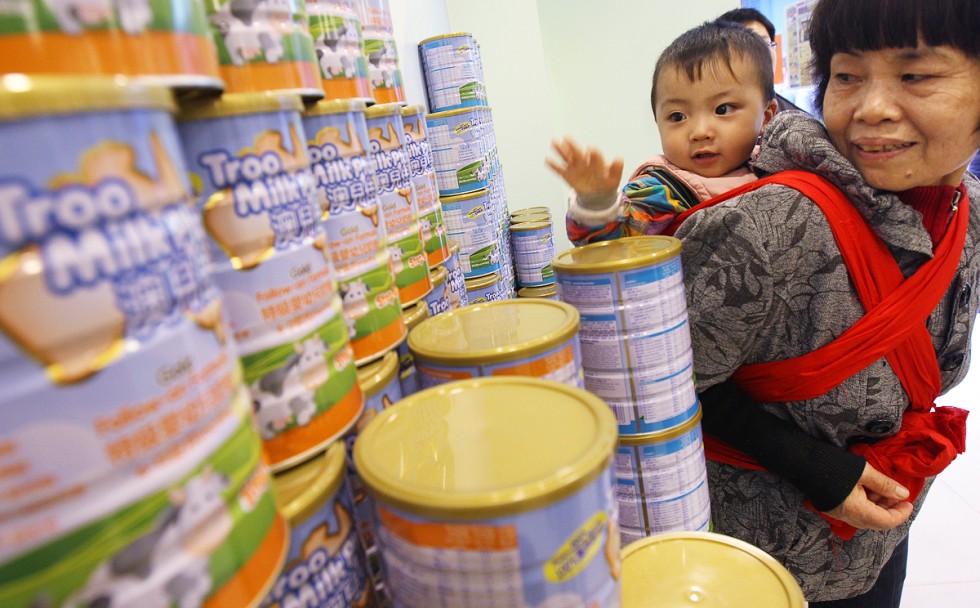Customs arrest 5,000 people in 12 months in milk ban crackdown
Customs officers seize more than 61 tonnes of baby formula from people attempting to flout ban on taking more than two tins out of city
PUBLISHED : Thursday, 19 March, 2015, 1:02am
UPDATED : Thursday, 19 March, 2015, 1:02am
Ng Kang-chung [email protected]

The so-called milk ban restricts outbound travellers to two tins of infant formula. It was imposed by the government in March 2013 amid shortages of certain brands. Photo: David Wong
Customs officers arrested 5,000 people - almost two-thirds of whom were mainlanders - in the past year for taking more than the allowed amount of baby formula across the border, new figures have shown.
Statistics presented to the Legislative Council yesterday also showed that most offenders were fined between HK$250 and HK$100,000 by the courts, with only 157 people being jailed - for between one and 140 days.
The so-called milk ban restricts outbound travellers to two tins of infant formula. It was imposed by the government in March 2013 amid shortages of certain brands.
The surge in demand was widely attributed to the boom in parallel-goods trading - the practice of buying goods in Hong Kong for resale over the border.
From last March to February, customs uncovered a total of 4,986 cases of illegal exports of powdered formula, involving the arrests of 5,000 people and the seizure of 61.2 tonnes of formula.
Of the people arrested, 1,748 were Hong Kong residents, 3,235 were mainlanders, and 17 were foreigners.
This compares with the 5,058 cases, the arrest of 5,092 people and the seizure of more than 39 tonnes of powdered formula in the first year of the ban.
But some lawmakers said the milk ban was not dealing with the problem and called for measures to discourage parallel-goods traders coming to Hong Kong.
Pan-democrat Raymond Chan Chi-chuen, of People Power, said: "The government should consider introducing a land arrival tax for visitors to discourage parallel-goods traders."
Vincent Fang Kang, of the Liberal Party, also backed a new tax.
Lau Wong-fat, lawmaker for the Heung Yee Kuk, the powerful rural body that represents indigenous villagers in the New Territories, urged the police to step up patrols to maintain order in the wake of a spate of recent protests against parallel trading.
Secretary for Security Lai Tung-kwok said the government was very concerned about the nuisance caused by parallel trading to residents and said the authorities had stepped up a crackdown.
Since September 2012, the Immigration Department has maintained a "watch list of suspected parallel traders".
As of the end of last month, there were more than 13,500 mainlanders on the list and the immigration authorities had refused more than 28,500 entries, Lai said.
But he rejected the idea of a land arrival tax, saying: "About 180,000 Hong Kong residents go to the mainland every day. If the tax were to be imposed on mainland visitors, we could not just hope that the mainland would not impose the same tax on Hong Kong people in return."
Meanwhile, Secretary for Commerce and Economic Development Greg So Kam-leung said the government would enhance cooperation with mainland authorities to combat parallel trading activities.
He added that Hong Kong's capacity to handle tourists would increase with the total number of hotel rooms rising to about 84,000 in 2017.
